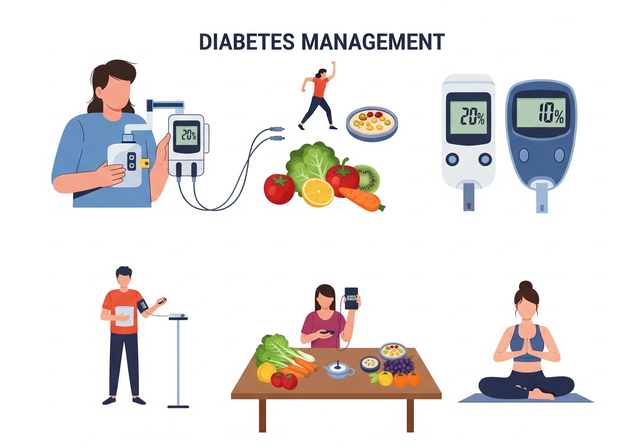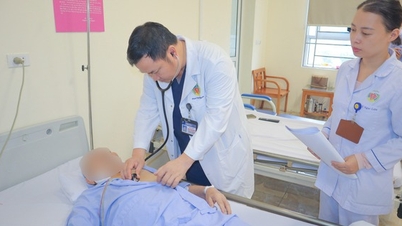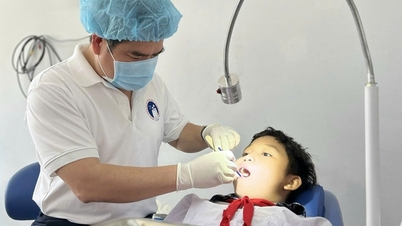According to specialist doctor 2 Nguyen Thi Diem Huong, University of Medicine and Pharmacy Hospital, Ho Chi Minh City - branch 3, kidney failure is no longer a disease of the elderly, it is silently attacking the young population, especially those under 40 years old - the group considered to be the main labor force of society.
According to in-depth reports from domestic medical facilities in the period 2020-2025, the rate of young people aged 18 to 30 with kidney disease accounts for 20-30% of all kidney disease cases. This poses a major challenge not only in terms of medical expertise but also in terms of health system management, social security and national economic development.

When symptoms such as prolonged fatigue, swelling of the face and feet, frequent urination at night, foamy urine appear, kidney failure has progressed severely.
Illustration: AI
Common causes of kidney failure in young people
Specialist Doctor Nguyen Thi Diem Huong said there are many causes leading to kidney failure, including some of the following main causes:
Unbalanced diet : Young people increasingly consume fast food, processed foods, and sugary drinks. Average sugar consumption in Vietnam has quadrupled over the past 15 years.
Lack of exercise, staying up late and prolonged stress : High intensity of work and study causes many young people to not get enough sleep, often stressed and lazy to exercise. These are risk factors that contribute to promoting non-communicable diseases such as high blood pressure, diabetes, obesity - underlying diseases that cause kidney damage.
Habit of holding urine, drinking little water : These seemingly harmless behaviors contribute to the decline of kidney filtration function, creating conditions for urinary tract infections, kidney stones and kidney tissue damage.
Uncontrolled abuse of drugs and functional foods : Arbitrarily using painkillers, antibiotics or "kidney-tonifying, liver-cooling" functional foods of unknown origin can cause interstitial nephritis and renal tubular necrosis - serious consequences that are often detected late.
Increasing underlying medical conditions in young people : The rates of diabetes, hypertension, glomerulonephritis and metabolic disorders in young people are increasing. Notably, chronic glomerulonephritis - the leading cause of kidney failure - is increasingly being diagnosed in people under 35 years of age.
Solutions to prevent kidney failure early
According to the Ministry of Health , up to 90% of people with kidney failure do not know they have the disease. When obvious symptoms such as prolonged fatigue, swelling of the face and feet, frequent urination at night, foamy urine... appear, the disease has mostly progressed severely.

Early treatment and good control of diabetes, high blood pressure, immune diseases... are ways to prevent kidney failure.
Photo: AI
Dr. Diem Huong said that, from the above reality, it is necessary to have a proactive screening strategy in the community, especially in high-risk groups such as young people with unhealthy lifestyles, people with a family history of kidney disease, high blood pressure, and diabetes.
Change health behavior: Reduce salt intake, increase green vegetables, drink enough water, maintain regular exercise at least 150 minutes/week.
Regular health check-ups: Urine tests, blood creatinine, and blood pressure measurements should be added to the regular health check-up package for young people.
Control underlying diseases: Early treatment and good control of diabetes, high blood pressure, and immune diseases such as lupus or glomerulonephritis.
Strengthen communication and health education : Use social media, KOLs and community communication campaigns to change awareness about kidney disease and kidney-healthy lifestyle habits.
Digital technology application: Exploiting the potential of artificial intelligence and digital health platforms in early screening, monitoring reminders, patient management and treatment support.
In addition, clinically, many young people under 40 years old have an eGFR of 60 to less than 90 mL/min/1.73 m 2 - a level that is still recorded as "normal" in the test - but is actually lower than the expected level according to age (must be above 90 mL/min/1.73 m 2 ). This is especially noteworthy if accompanied by risk factors such as: Obesity, lack of sleep, smoking, regular alcohol consumption, chronic inflammation, family history of diabetes, hypertension or kidney disease. Cases with eGFR lower than this threshold need to be monitored periodically to detect potential kidney damage early, adjust lifestyle and control risk factors to prevent silent progression to kidney failure.
Dr. Diem Huong warned that early kidney failure in young people is no longer a rare problem but has become a serious public health problem. Early prevention, changing lifestyle, enhancing screening and managing risk factors will be the key to stopping the rejuvenating wave of kidney disease.
Source: https://thanhnien.vn/vi-sao-benh-suy-than-co-xu-huong-tre-hoa-cach-phong-the-nao-185250616133659562.htm








































































































Comment (0)